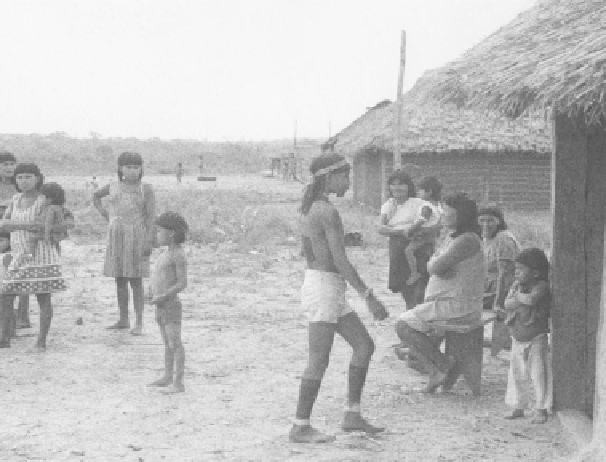Geography Reference
In-Depth Information
Figure 2. Lino Xavante walking into the adobe schoolhouse at the Ri'tubre Village, Kuluene
Indigenous Reservation (now Parabubure Indigenous Land), 1979.
maps written on the walls into my school diaries, and use them on my visits to the
villagers' homes. In this respect, we were mapping people in their relations with the
world as an essential principle of a critical liberatory education.
As the Brazilian educator Paulo Freire wrote in
Pedagogy of the Oppressed,
Education as the practice of freedom - as opposed to education as the practice of
domination - denies that man is abstract, isolated, independent, and unattached
to the world; it also denies that the world exists as a reality apart from people.
(Freire 2006:81)
Paulo Freire (1921 - 1997) created his philosophy of popular education working with
the illiterate poor of the Brazilian Northeast. Starting in the late 1940s, his innovative
approach to literacy emphasized peasants' ability to generate knowledge collectively,
using “generative terms” - such as land, water, food, transportation - that conveyed
their life conditions and worldviews. Freire's
Pedagogy of the Oppressed
enabled
people to see themselves as historical actors, capable of organizing on their own and
creating social change.
From the very beginning, the critical pedagogy of Paulo Freire oriented my work
in both health and education. Freire's
Pedagogy of the Oppressed
, first published
in Portuguese in 1968, provided substantial insights for the development of a
system of popular education in Brazilian Indigenous schools during the oppressive

